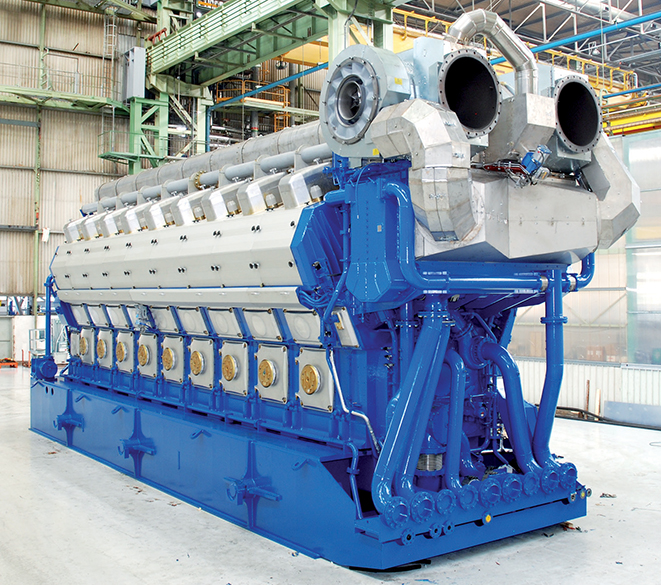Engines For Africa: Leading Company of Costs Engines
Wiki Article
A Complete Overview to Picking the Right Engine for Your Task
Picking the suitable engine for your job is a crucial choice that can significantly affect its general success. Each of these aspects plays a critical duty in guaranteeing that your selected engine not just fulfills instant objectives but also lines up with lasting goals.Define Your Task Requirements
Defining your project requires is an important action in picking the proper engine for successful execution. A comprehensive understanding of your job's objectives will certainly direct you in identifying the capabilities and functions needed from an engine. Begin by detailing the scope of your task, including the wanted performance, target audience, and the specific outcomes you intend to accomplish.
Following, take into consideration the technological requirements that line up with your job objectives. This consists of examining the compatibility of the engine with existing systems, in addition to the programming languages and structures that will be used. Additionally, examine the level of scalability needed to suit future growth or adjustments in demand.
Budget plan restraints also play an essential role in defining your task needs. Establish a clear monetary structure to guide your decision-making process, ensuring that the engine selected fits within your budget plan while giving the necessary performance.
Evaluate Performance Requirements

Following, consider the scalability of the engine. Assess whether it can deal with boosted work as your job expands. Engines that support straight scaling are often more effective for bigger applications. In addition, evaluate the engine's efficiency under different problems, such as peak use circumstances, to ensure it fulfills your integrity requirements.
Think About Convenience of Usage
While technical specifications are vital, the simplicity of use of an engine can considerably impact the growth procedure and general project success. An intuitive interface, clear documents, and structured workflows can significantly reduce the understanding contour for designers, enabling them to concentrate on imagination and problem-solving as opposed to coming to grips with complex devices.When examining an engine's simplicity of usage, consider the onboarding experience. A well-structured introduction, full with tutorials and example jobs, can assist in a smoother transition for brand-new users. In addition, the look at this web-site clearness and comprehensiveness of the engine's documentation play a vital duty; comprehensive guides and API recommendations can empower designers to troubleshoot and carry out features effectively.
Another element to consider is the engine's modification capabilities. An engine that enables easy adjustments can be more straightforward, as designers can tailor it to fit their specific demands without extensive problem. Finally, analyze the process integration with systems and devices you already make use of. A natural environment can enhance performance and minimize friction throughout the development process. Eventually, picking an engine that prioritizes simplicity of use can bring about a more pleasurable and efficient growth experience.
Assess Community and Assistance
The toughness of an engine's community and support network can significantly affect a developer's experience and success. When evaluating an engine, think about the size and task level of its area.In addition, evaluate the accessibility of official assistance channels. Trustworthy documentation, receptive consumer assistance, and routine updates are essential for addressing technical problems and maintaining your job on the right track. Engines For Africa. Active communities also promote cooperation, giving possibilities for networking and comments, which can be vital, especially for tiny teams or independent programmers
Furthermore, check out the visibility of community-run events, such as meetups or hackathons. These celebrations can improve your understanding of the engine while linking you with prospective partners and skilled users. In recap, a durable area and support group not just improve growth yet likewise create an atmosphere for discovering and advancement, eventually boosting the possibility of your project's success.
Contrast Cost and Licensing Options
Budget considerations play a vital role in picking the best click to investigate engine for your task, as the expense and licensing alternatives can substantially affect both short-term costs and lasting feasibility. Engines For Africa. Different engines offer differing rates structures, which can consist of one-time purchase charges, membership models, or revenue-sharing arrangements based upon your job's revenues
Licensing options also vary substantially. Some engines are open-source, supplying versatility and community-driven assistance, while others might call for exclusive Recommended Reading licenses that limit usage and circulation. Recognizing the ramifications of each licensing design is crucial, as it affects ownership civil liberties, future scalability, and potential legal responsibilities.
Conclusion
In verdict, picking the ideal engine for a job necessitates a complete examination of specified task demands, performance requirements, ease of use, area support, and expense considerations. By methodically addressing these essential variables, decision-makers can make sure positioning with both future and current project demands. A knowledgeable choice ultimately enhances the chance of job success, making it possible for effective source allotment and taking full advantage of possible outcomes within the specified monetary restraints.Picking the ideal engine for your job is an important decision that can dramatically affect its total success.Defining your project requires is a critical action in selecting the suitable engine for successful application. A comprehensive understanding of your job's objectives will assist you in identifying the features and capabilities called for from an engine.As soon as you have a clear understanding of your project requires, the next action is to review the performance needs of the engine.In verdict, choosing the ideal engine for a project requires a comprehensive examination of defined project needs, efficiency needs, convenience of use, neighborhood support, and cost factors to consider.
Report this wiki page